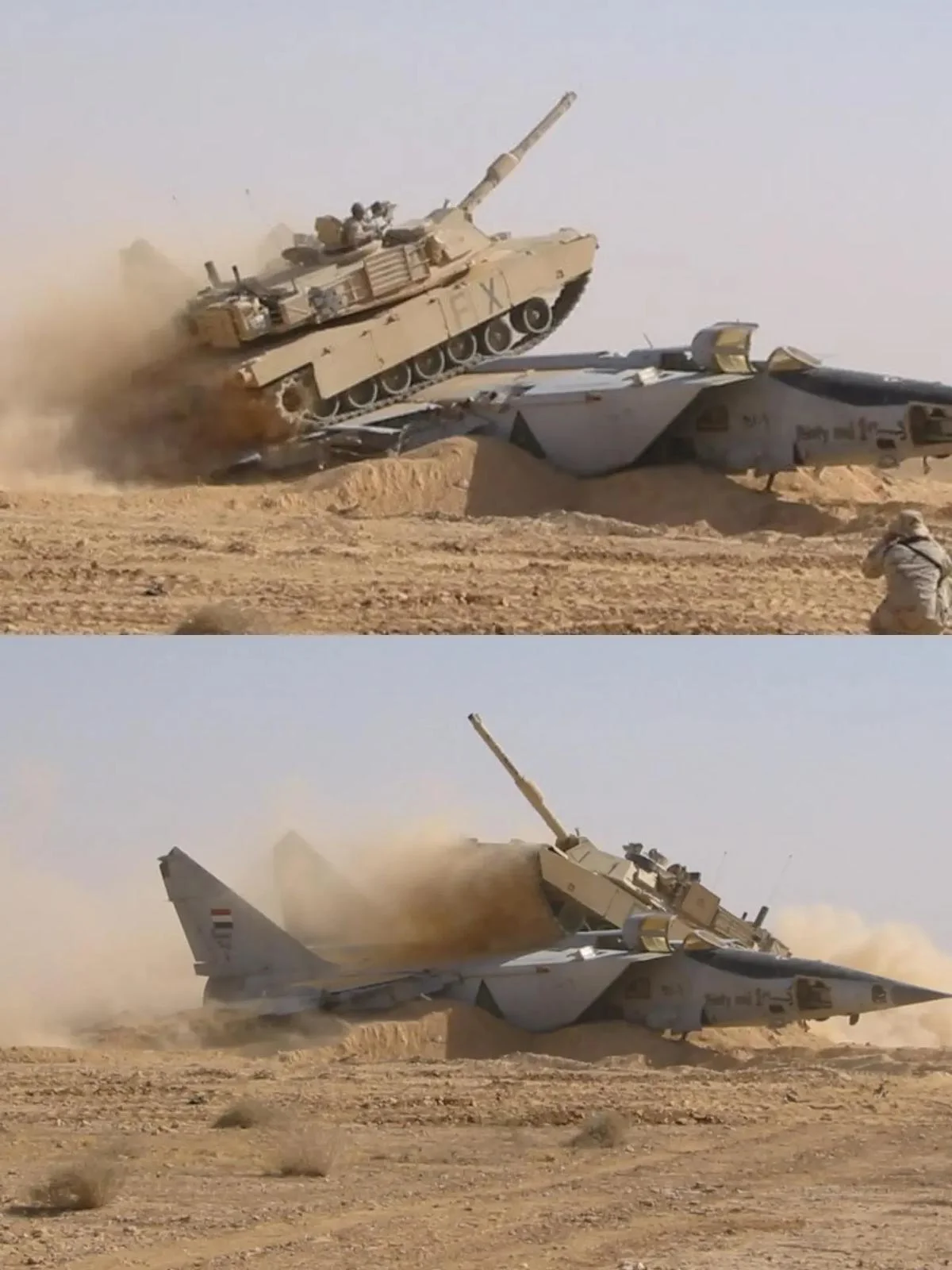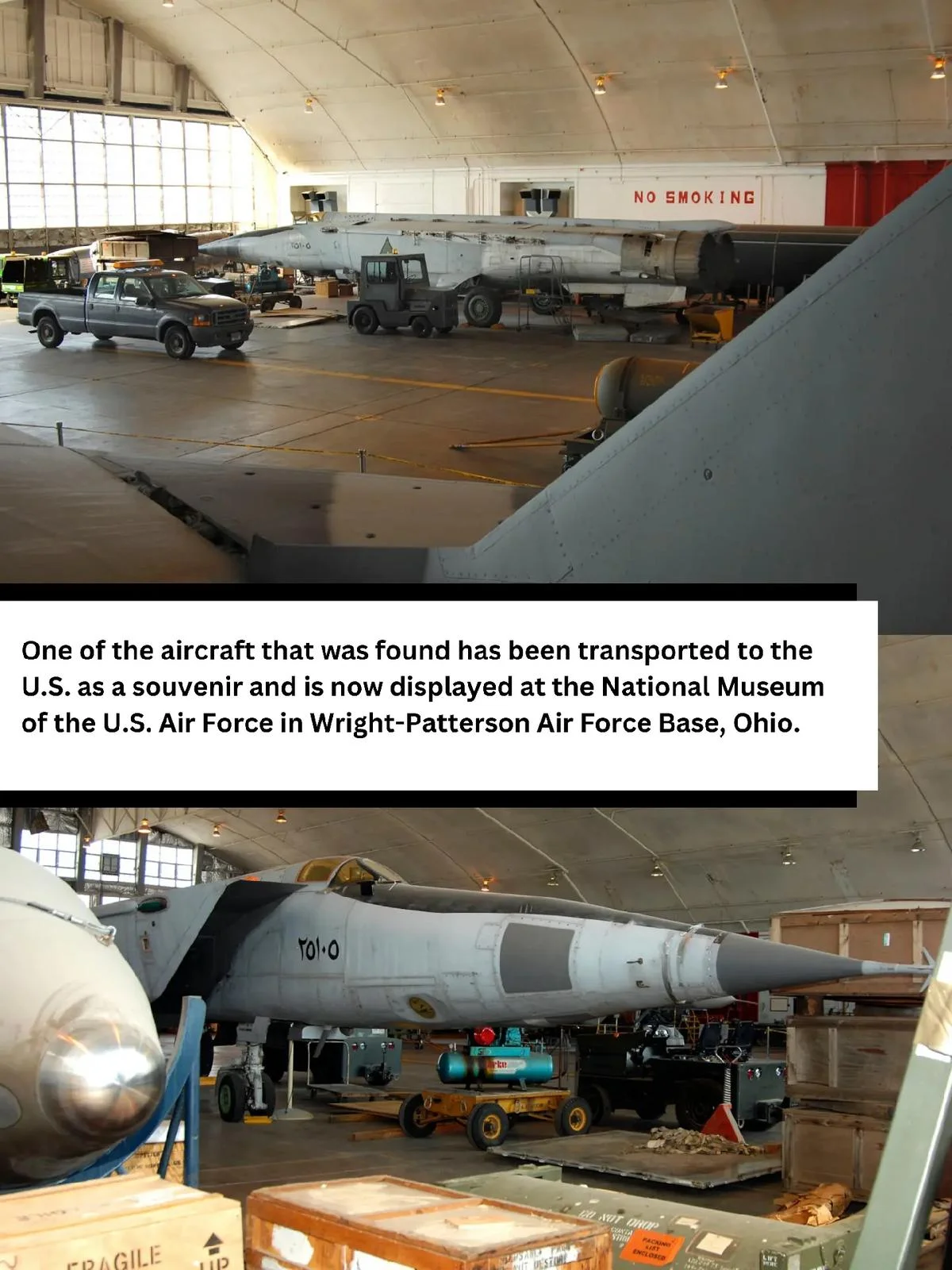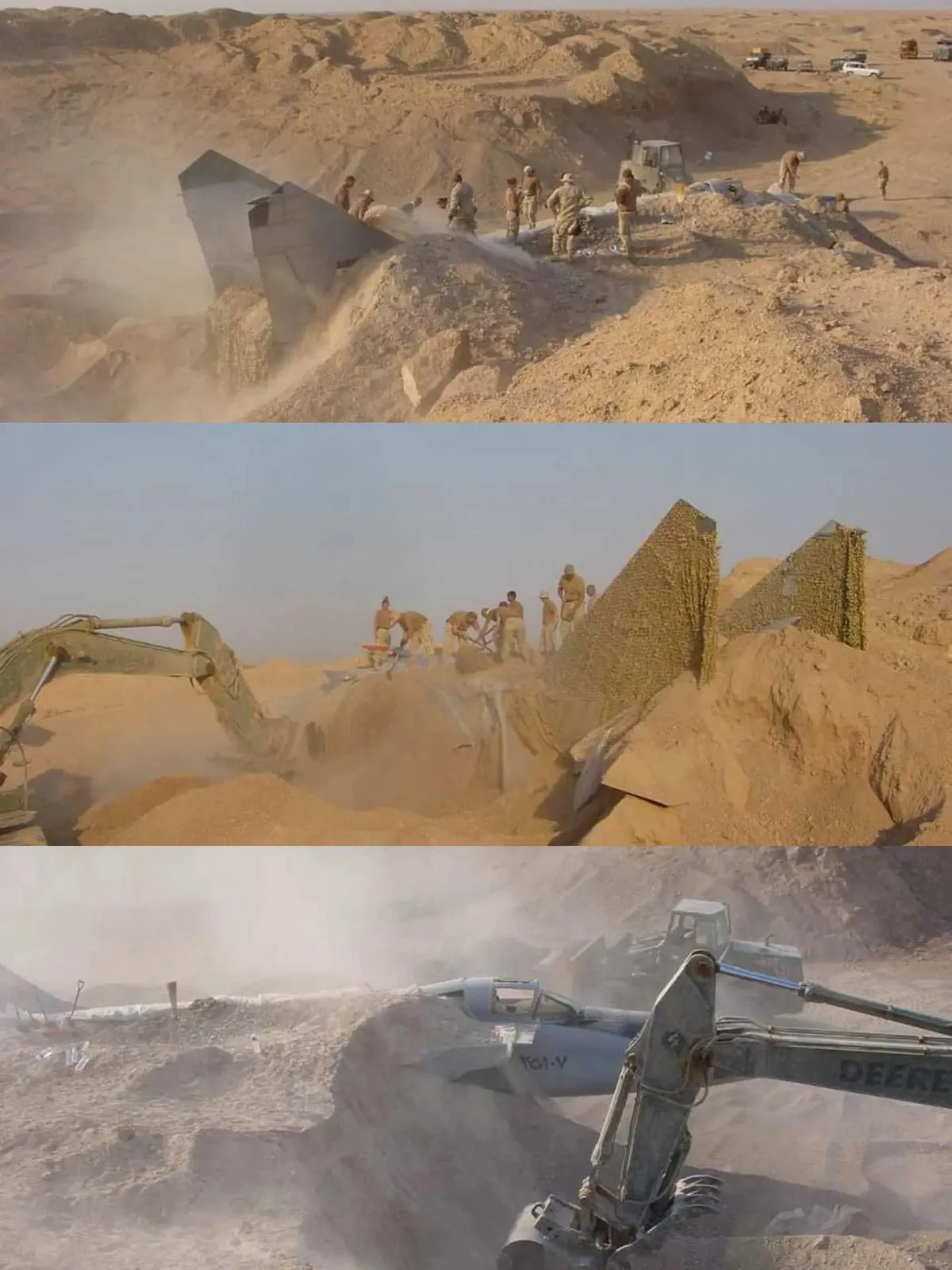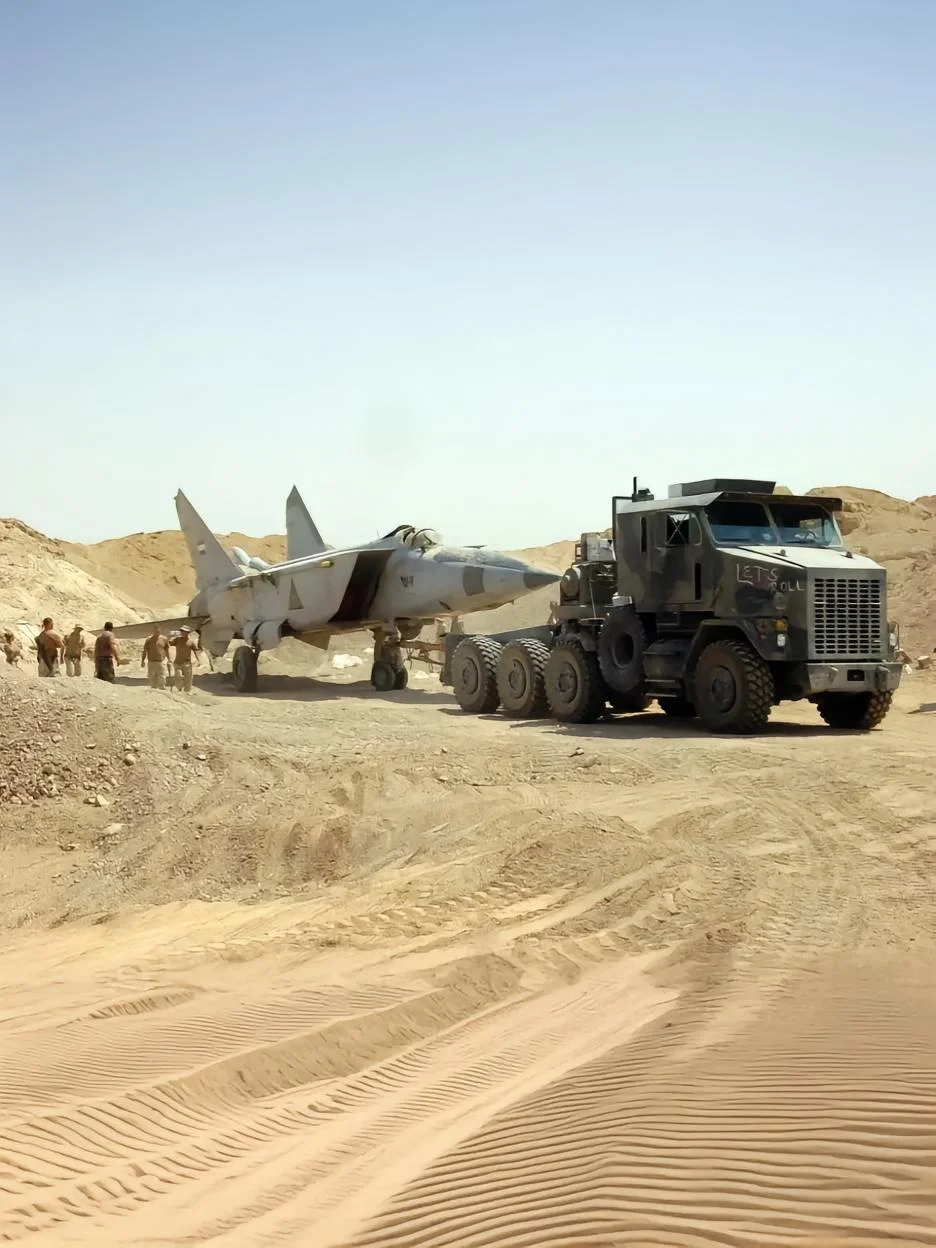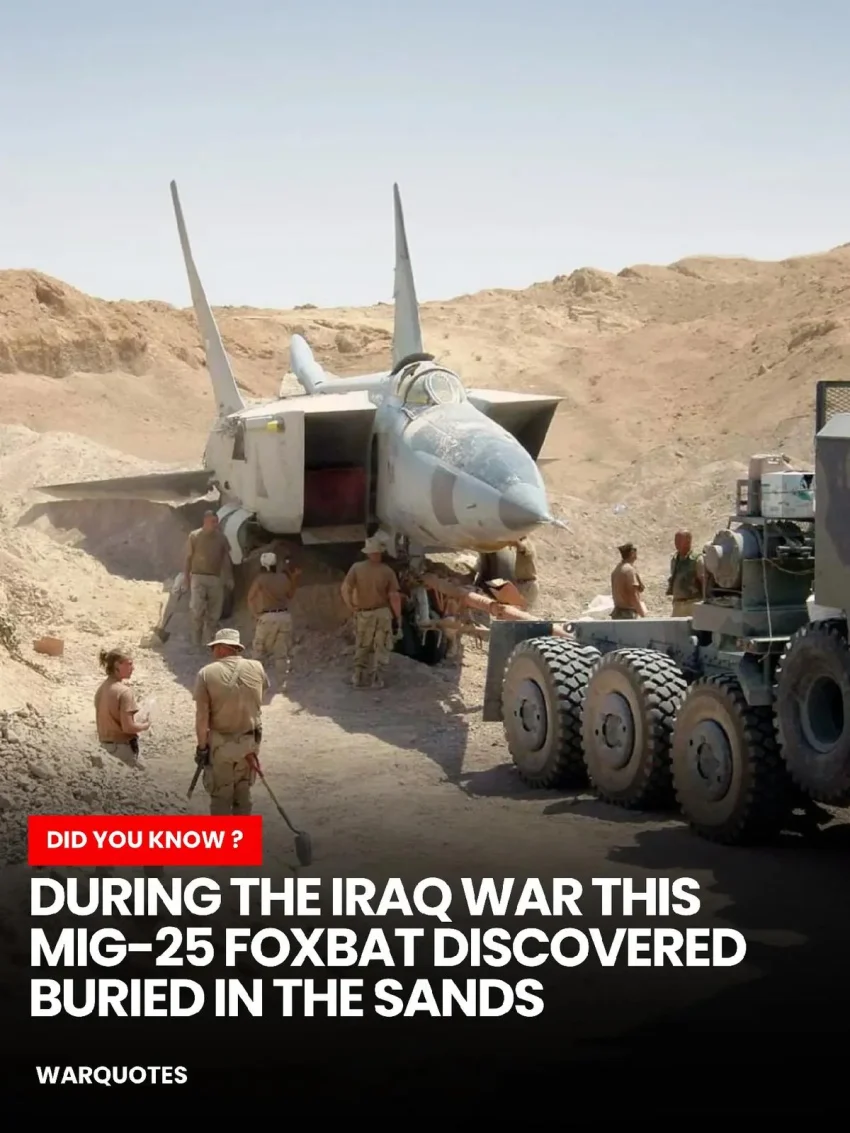U.S. weapons inspectors have discovered “dozens of Iraqi air force fighter jets” buried in the sand near an airfield west of Baghdad, the Wall Street Journal reported on August 4, 2003. Inspectors stumbled upon the startling find after noticing two tail fins poking up through the sand. Beneath the telltale stabilizers: a completely intact Soviet-built Cold War era MiG-25.
By the time the excavation was complete, inspectors had uncovered “30-plus” aircraft hidden underground, including MiG-25 interceptors and Su-25 ground attack jets.
The below photos show a buried Iraqi jet fighter being recovered by U.S. Army, U.S. Marines and Air Force personnel. The jet, an advanced Russian MiG-25 Foxbat, was found buried in the sand after an informant tipped off U.S. forces.
The MiG was dug out of a massive sand dune near the Al Taqqadum airfield by U.S. Army and Air Force and U.S. Marines recovery teams. The MiG was reportedly one of over two dozen Iraqi jets buried in the sand, waiting to be recovered at a later date.
The Russian-made MiG-25 Foxbat being recovered by U.S. troops in the photos is an advanced reconnaissance version never before seen in the West and is equipped with sophisticated electronic warfare devices. The Foxbat is known to be one of Iraq’s top jet fighters. The advanced electronic reconnaissance version found is also currently in service with the Russian air force.
U.S. Army and Air Force and U.S. Marines recovery teams had to use large earth-moving equipment to uncover the MiG. The recovery of the advanced MiG fighter is considered to be an intelligence coup by the U.S.
The buried aircraft at Al Taqqadum were covered in camouflage netting, sealed and, in many cases, had their wings removed before being buried more than 10 feet beneath the Iraqi desert.
